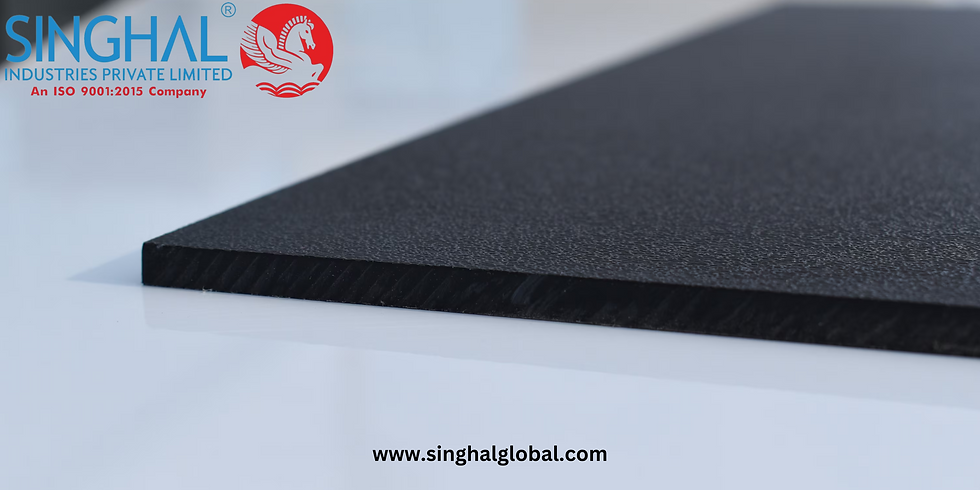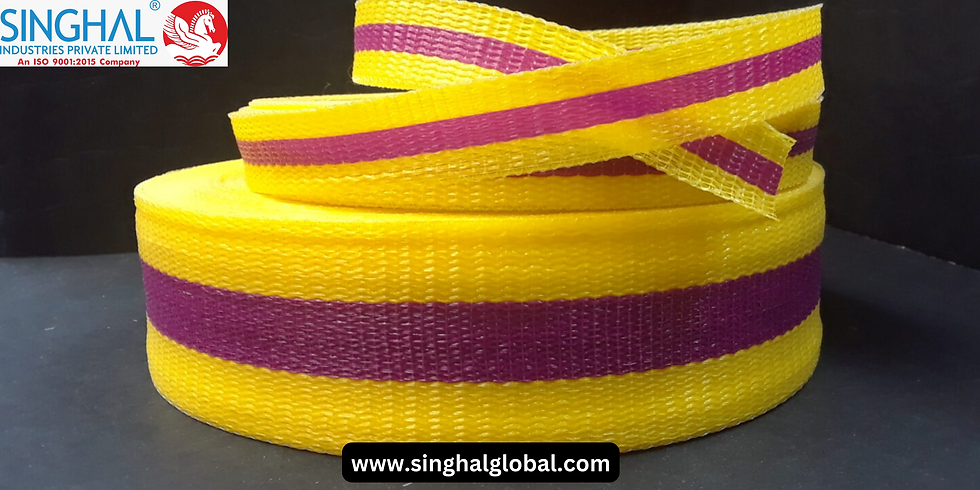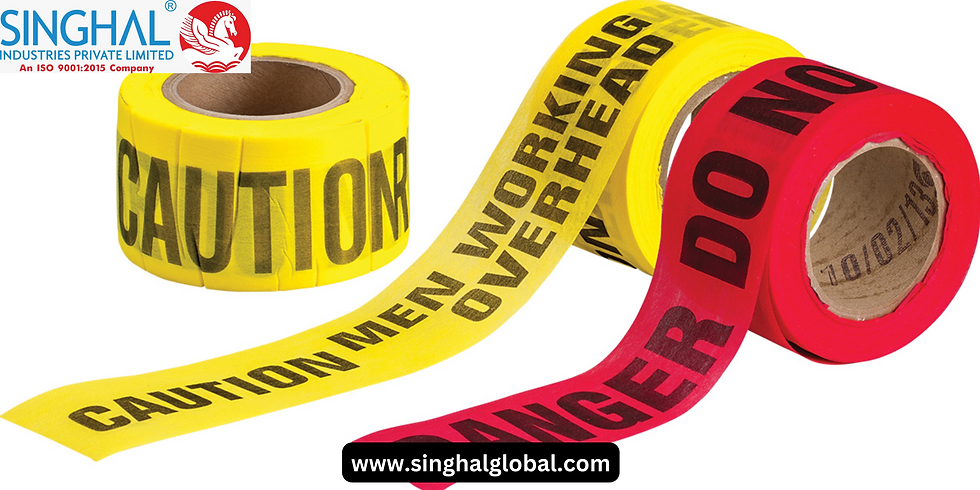From Vision to Reality: Craft with the Precision of PC Hollow Sheets
- Akash Pathak
- Sep 4, 2024
- 4 min read

In the ever-evolving world of construction and design, the demand for materials that combine durability, flexibility, and aesthetic appeal is more pressing than ever. Among the front-runners in this material revolution are polycarbonate hollow sheets, commonly known as PC hollow sheets. These innovative sheets are transforming the landscape of architecture and design by offering unparalleled versatility and precision. This article delves into the unique attributes of PC hollow sheets, explores their diverse applications, and addresses some frequently asked questions about polycarbonate sheets.
The Revolution of PC Sheets
Polycarbonate hollow sheets have emerged as a game-changer in the building and design sectors, providing a perfect blend of strength and lightness. Unlike traditional glass or plastic sheets, these sheets are constructed from polycarbonate, a high-performance material known for its exceptional impact resistance and thermal insulation properties. The hollow core structure of these sheets, often seen in double or triple-walled configurations, enhances their insulating capabilities while reducing weight. This innovative design makes them ideal for a wide range of applications, from skylights and greenhouses to partition walls and signage.
The unique structural design of PC hollow sheets not only offers superior insulation but also contributes to energy efficiency. The air pockets within the sheets act as thermal barriers, reducing the transfer of heat and cold. This means that buildings using these sheets can maintain more stable internal temperatures, potentially leading to significant savings on heating and cooling costs. Additionally, the lightweight nature of these sheets simplifies handling and installation, making them a preferred choice for both commercial and residential projects.
Applications and Benefits
PC hollow sheets are versatile and can be employed in numerous applications, each leveraging their unique properties to achieve specific design goals. In commercial buildings, these sheets are often used in facades and canopies, where their ability to diffuse light while providing protection from the elements is highly valued. In residential settings, they are used for skylights and sunrooms, offering homeowners a bright, airy space with enhanced thermal efficiency.
One of the key benefits of Polycarbonate hollow sheets is their durability. These sheets are highly resistant to impact, making them suitable for environments where they might be subject to high winds or hail. Unlike glass, they are less likely to shatter, which adds an extra layer of safety to buildings and structures. Furthermore, the UV-resistant coating on many polycarbonate sheets helps to prevent yellowing and degradation over time, ensuring that the material maintains its clarity and performance for years.
The aesthetic appeal of PC hollow sheets cannot be overlooked. Available in a variety of colors and finishes, these sheets can be customized to fit the specific design needs of any project. Whether you're aiming for a modern, sleek look or a more traditional appearance, there is a polycarbonate sheet option to match your vision. The ability to manipulate light and create unique visual effects makes these sheets a favorite among architects and designers looking to push the boundaries of conventional materials.
Cost Considerations and Value
When evaluating materials for a project, cost is always a critical factor. The Polycarbonate sheets price can vary based on several factors, including thickness, color, and the complexity of the design. However, the initial polycarbonate sheet price is often justified by the long-term benefits these materials offer. Their durability and low maintenance requirements contribute to a lower total cost of ownership compared to other materials, such as glass or traditional plastics.
Polycarbonate hollow sheets are also known for their energy efficiency, which can translate into lower utility bills over time. By improving thermal insulation and reducing heat loss, these sheets help create more energy-efficient buildings. In regions with extreme weather conditions, the savings on heating and cooling can be substantial, further enhancing the overall value of investing in polycarbonate sheets.
Conclusion
Polycarbonate hollow sheets represent a significant advancement in material science, offering a unique combination of strength, lightness, and aesthetic versatility. Their innovative design, coupled with their practical benefits, makes them an excellent choice for a variety of architectural and design applications. Whether you’re looking to enhance the energy efficiency of a building, create visually stunning spaces, or simply find a durable and low-maintenance material, PC hollow sheets offer a compelling solution. By understanding their advantages and addressing common questions, you can make informed decisions and turn your vision into reality with precision and confidence.
Frequently Asked Questions
What is the difference between PC hollow sheets and solid polycarbonate sheets?
PC hollow sheets and solid polycarbonate sheets both offer impressive durability and impact resistance, but they differ significantly in structure and application. Hollow sheets have a multi-wall design with air pockets, which provides superior insulation and reduces weight. This makes them ideal for applications where thermal efficiency and lightweight properties are crucial. In contrast, solid polycarbonate sheets are denser and provide greater strength and security, making them suitable for applications requiring higher impact resistance or where a solid, opaque barrier is needed.
Can polycarbonate hollow sheets be used for roofing applications?
Yes, polycarbonate hollow sheets are highly suitable for roofing applications, especially in structures where natural light and thermal insulation are desired. Their ability to diffuse light while providing excellent insulation makes them a popular choice for skylights, conservatories, and other types of roofing. The hollow core design also helps to reduce the overall weight of the roofing material, which can simplify installation and reduce structural loads.
How do polycarbonate hollow sheets perform in extreme weather conditions?
Polycarbonate hollow sheets are known for their resilience in extreme weather conditions. They are highly impact-resistant, which helps them withstand hail, strong winds, and other forms of severe weather. Additionally, many polycarbonate sheets come with UV-resistant coatings that protect against sun damage and prevent yellowing over time. This durability ensures that the sheets maintain their clarity and performance, even in challenging environments.



Comments